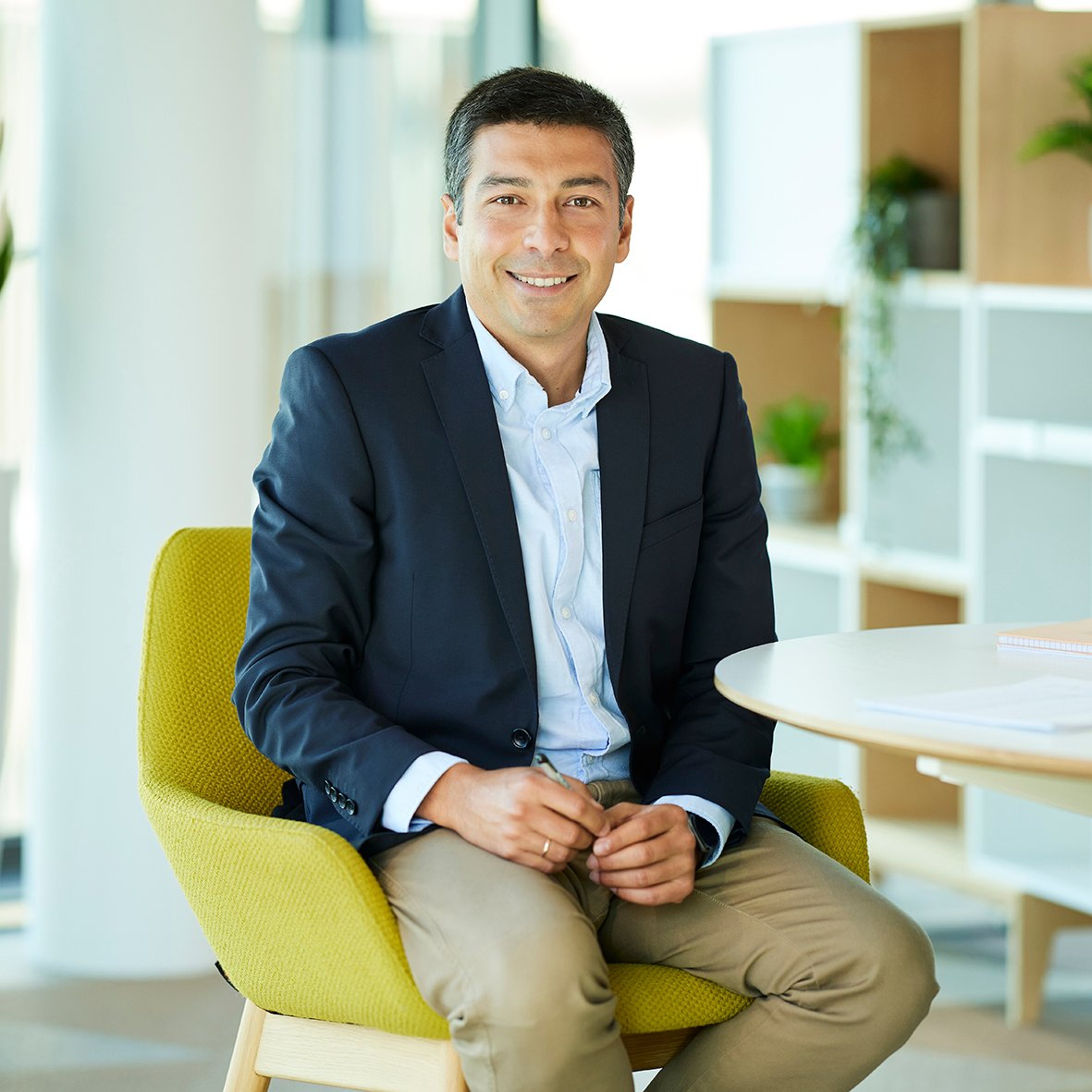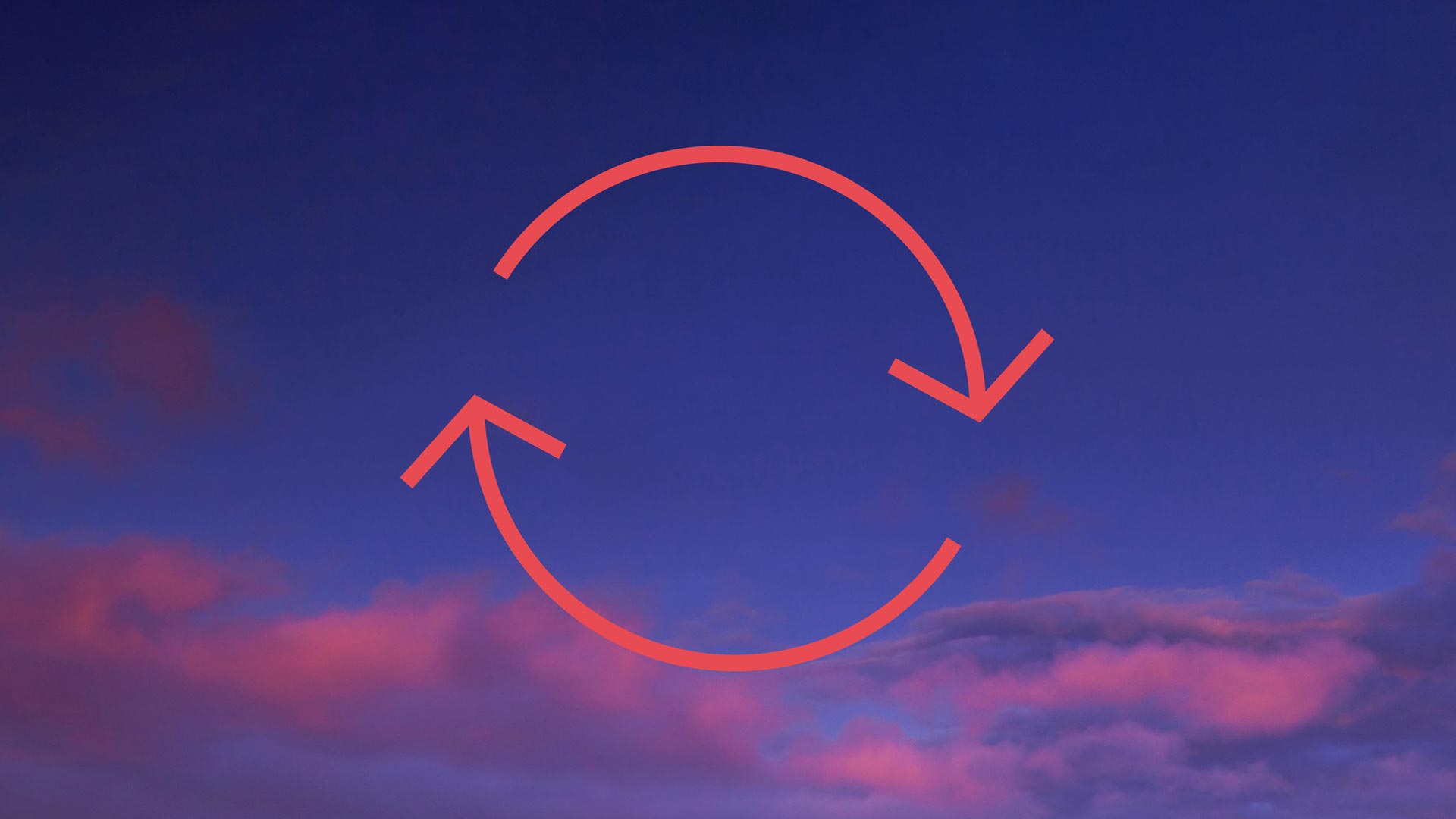As with any investment, your capital is at risk.
Mona Siddiqui (MS): Hello and welcome. My name is Mona Siddiqui and I'm a Professor of Islamic and Interreligious Studies at the University of Edinburgh. I'm also a regular broadcaster in the UK with a keen interest in issues of law, ethics and pluralism. But I'm here today for the launch of the Baillie Gifford Islamic Global Equity Strategy. It's an investment strategy that aims to invest in a manner that is compliant with Islamic principles, with the view that business should be a positive good for the whole of society, and within that view, that business should avoid investing in activities and products which are considered unlawful or, in the Islamic context, haram. To help me talk through the Islamic Global Strategy, I'm joined by Kave Sigaroudinia and Tolibjon Tursunov, the co-managers of this strategy at Baillie Gifford.
Kave, you're a partner in the firm. Can you explain a little bit about yourself and the genesis of this strategy, and also about why the partnership has decided to launch this strategy?
Kave Sigaroudinia (KS): Absolutely. Well, first of all, welcome to Baillie Gifford. Thank you for coming in.
MS: A pleasure to be here. Thank you.
KS: So I've been an investor at Baillie Gifford for 24 years. And during that time, I've worked in a number of our investment teams. Most recently in the last 10 years, I've had the role of head of research for our UK Equities Team, and also before that, head of research for one of our international teams.
And what you see when you look across the investment floor at Baillie Gifford is a common investment philosophy and approach. And there are two elements to this. The first is growth. So we're all looking for the best growth companies we can find in the world. And the second is the ownership tenure. So we're looking to own these companies for very long periods of time. And what we're looking for in the companies is a similar timeframe in the culture and the leaderships of those businesses. So we're looking for management teams that really think in generations rather than quarters. And those sorts of businesses, they're really thoughtful about all of their stakeholders. So they're thinking about their staff, they're thinking about their clients, they're thinking about the communities that their businesses are located in, and of course, the planet as well.
So we feel that with that foundational approach, there's a sort of natural alignment with Muslim values and shariah investing approach. So we've got the raw material there. Now, the second element is actually looking at the market. And what we've seen in our analysis is that the typical approaches in this market are either passive, so that's just owning all of the stocks in an index, or where there are active managers in this market, the majority of them are starting with a master portfolio, and then they're taking names out that aren't compliant with Shariha. We think there's a better way to do this. We think it's better to actually build a shariah compliant portfolio from the bottom up for Muslim investors. And this strategy is comprised of 30 to 50 of the best growth stocks in the world.
MS: Well, thank you. Thank you very much for that. That's really interesting. I'll turn to your colleague now, Tolibjon. Can you also tell me a little bit about yourself and your motivation and experience behind developing this strategy?
Tolibjon Tursunov (TT): Sure. Thank you, Mona. I grew up in Bukhara in modern day Uzbekistan. And I've been with Baillie Gifford for 12 years now, investing in some of the world's leading growth companies. At Baillie Gifford, we, as Kaveh alluded to earlier, we spend our time rotating through various investment teams, geographical investment teams, so as to develop a better, more rounded view of the world. So Kaveh and my combined nearly four decades of investing, we will have spent in various geographies, observing and learning all the while.
The idea of launching a fund that invests under Islamic principles came to me in 2015. That was when I was coming out of my training at Baillie Gifford and had started to save up money. And I wanted to invest it. I wanted to invest it in a fund that was backing companies which were doing good for the society as a whole, which were driving the future of our economies. But I also wanted to do it in compliance with my Islamic belief. Then there were very few choices available, largely still the case. But the firm, instead of going to the market there and then, we went the other way. We said, we need to read, we need to understand the foundational principles of Islam and how they relate to the task of equity investing. So we spent time learning about the fundamentals all this while, about eight years or so.
The second part of your question to do with motivation, nothing grandiose really, very simple. It's just a simple feeling of obligation, an obligation to build a first class product for the Muslim population of the world, not a derivative, not a second class, not a lesser version of some master fund that is available to large institutional clients elsewhere.
MS: And how long have you been developing this strategy?
TT: So about eight years. Now, eight years may sound a long period for some, but for Baillie Gifford, by Baillie Gifford standards for a firm that has been around for 110 years, it's not. It's quite natural for us to take our time to study and understand the needs of the clients, as well as our own abilities to see whether we can do it well before we come to the market. So all this time we've spent testing those. And I guess we have several learnings from that and I can share a few.
MS: Sure. Before we go on to that, I want to just ask you, you've used the word shariah and we know that meanings of shariah are complex, they're multi-layered, there's all kinds of nuances and debates. What in your view, Kave, makes for a portfolio that is Islamic and that is shariah compliant?
KS: So obviously there are areas of the market that you cannot invest in, and that's the kind of rigorous, kind of rules-based side of shariah investing. But I think much more importantly than that, we're really trying to understand Muslim values and how they fit with the sorts of companies that we're looking to own for our clients. And for that, we place a lot of emphasis on the leadership teams of the organizations that we look to invest in and on the cultures of those organizations. So I mentioned earlier about the importance of leaders actually thinking deeply about all of the stakeholders in their business. And if you think about that, this is what we're asking them to do and we engage with them in depth on these subjects is, you know, if you're thinking about running this business for generations rather than for the next quarter, you need to really be thinking about how you treat your staff. What opportunities are you providing to your staff? Are you investing in them and giving them the opportunity to grow? You need to have a very long-term approach to your relationship with your clients. There are a lot of companies out there that are just there to make a quick buck. They're profiteering. We're looking for management teams that are thinking about having relationships with their clients, which are based on adding value for them, and then in a very transparent and fair way, sharing that value with their clients and going on that journey with them. And I mentioned as well about communities. We want to invest in companies run by leaders with cultures where they really care about leaving a positive legacy in those communities in which they're operating. And obviously part of that is about the impact that we all have on the planet.
MS: You said Islamic values. Is there one value that you can pinpoint that emerged from your findings?
KS: I'd love to hear Tolibjon’s view on this. For me, it's fairness. It's fair treatment of everybody. And it's about the bottom up. It's about taking away hierarchy and making sure that everybody has an opportunity.
MS: That's really interesting. And the other thing that when we talk about shariah nowadays, a lot of it is tied to really kind of archaic formulas or box ticking that this becomes shariah compliant. I sense that your approach to this strategy is slightly more holistic.
TT: Sure, let me take that, maybe Kave can add to that. Now, there are two approaches at the moment. One, and that is prevalent very much so in the industry, bearing in mind that the industry is very, very young and at the very early stages of development and therefore probably needs improvement. That approach is very much being nearly fixated, but definitely being sort of cognisant of the certain ratios and certain screens that a company should be put through, and then for that company to be called compliant with Islam. Now, that's one way of doing it, and that's fine, but we feel there is a better way of ascertaining whether a company is in compliance with Islamic principles, and that's where we ask questions of, what legacy is the company building towards? What is the societal contribution of their products and services? What values are the management teams that running these businesses have subscribed to? So qualitative assessment of each company, bottom up, gives a better understanding whether that company is pursuing a business which is in compliance with Islamic principles. So for us, that's a more holistic view of companies and a more holistic view of investing is what makes a fund a truly Islamic fund.
MS: Would you like to add to that?
KS: Yes, well, I would really just echo what Tolibjon said, but maybe through the lens of actually analysing a company and kind of bringing that to life. Because, you know, this isn't about us sitting in a dark room reading through financial statements without any context. Our analysts spend a lot of time on the road going to visit companies and meeting individuals at all levels of the organisation. And what we're trying to do there is really get a feel for what is the culture of this company like. And in these long-term relationships that you have with companies, when you own them for 5, 10, 20 years, you also get to see the evidence. How have you treated your staff over the years, and how has that impacted your business? Have you been a good corporate citizen? Have you treated your customers fairly? And we can look at how they engage with their communities and talk to them about that. And of course, in this world of increased importance of the environment, we can engage with them on those issues. So there's a real opportunity if you kind of step back from mechanised sort of screens and really get stuck into a company's culture to identify the true attributes of a business and what drives.
MS: You both touched on the fact that many companies or many investors or strategies end up looking as if they're doing a box ticking exercise when it comes to thinking about shariah compliant. You both touched on the fact that Baillie Gifford has a far more holistic approach. But I wonder if you think that Muslim investors are actually in line with you in looking for that holistic approach, or is their view of shariah compliance slightly different?
TT: To be absolutely clear, we're not here downgrading or downplaying how some of our competitors have chosen to do this task. It is absolutely not for us. We don't have the right to do so in any case. It is one way of doing it, is all we're saying. The approach that we have is very much built on the feedback from the Muslim community, not only in the UK, but also speaking to the Muslim communities in the Middle East, in Southeast Asia, speaking to some of our scholars, speaking to not just our scholars, but just generally looking out, attending these seminars. That's the core. That's the feedback to us that numbers, fixation with ratios, 3 per cent versus 5 per cent, that is not how many Muslim people wish to invest their money. They would much rather know that the companies that they're buying are doing good for the whole of the society. They're doing good for the environment. So absolutely, we have taken that feedback on board and we have passed that feedback to our scholars and have developed something together with them, have developed something that we feel is going to go a very, very long way in meeting the needs of our potential clients.
MS: Really interesting. So, Kave, you would be happy to say that Baillie Gifford has managed to balance ethics with capitalism.
KS: You know, there are lots of ways that capitalism can go wrong and we see numerous examples of companies doing that, you know, exploiting natural resources, exploiting their workers, exploiting their customers. There's a lot of badness that can happen on the back of the opportunity to make money. So we know that there are elements of human nature that go that way and that there are companies that are run that way. Because we take such a long-term approach and because we own companies and we seek to own companies for very long periods of time, we place this huge amount of emphasis in our research process on the cultures within organisations. And I think by doing that, we actually minimise the risk of having any ethical conflict because we see that alignment. We're not going to own a business. You can't own a business where you're thinking, you know, I want to own this business for 20 to 30 years if you see these kind of short term, very self-serving business practices that are sadly all around.
MS: Because one of the criticisms is that a lot of Islamic finance is really about just Islamising capitalism, but I assume you would disagree with that.
TT: Absolutely, yes, and very much so disagree with it strongly. The foundational principles of Islam is one of the other learnings, having spoken to our scholars and attending seminars and listening to them, that there is this, as you say, this criticism of Islamic finance, but we feel it's unfair. It's unfair because Islam absolutely puts societal interests in front and centre when doing business. So in simple words, a typical transaction has two parties to it. But under Islamic guidance, there's always a third party. Third party is the interest of the society as a whole. And by the way, that definition includes the interests of the environment, the living around you. So when you have such a beautiful, such a foundational, such a guiding principle, that is guiding us all in the world of business, then we feel it is really unfair to criticise Islam and call it Islamic finance's actually re-engineered version of the capitalistic model that we have.
MS: Why do you think this will appeal to ordinary Muslims and what gives you confidence that this strategy will succeed?
KS: Well, I certainly can't give any guarantees about success. But what I can say is that I have a lot of confidence that we have got the inputs right. So we are leveraging off a tried and tested investment philosophy that has worked successfully in a number of areas over very long periods of time. And we've come up with a strategy that has been designed from the bottom up for Muslim investors. And we have the opportunity to deliver this strategy in the context of a partnership structure and a culture that gives us all the support and encouragement we need for success.
MS: And what would success look like to you Tolibjon?
TT: Let me add a couple of more points in terms of the ingredients that are going in here. So in addition to the skill set and the cultural points that Kave has made, I would add the ambition, this drive that we have driven by this feeling of obligation to create a first-class product for the Muslim population of the world, a product that allows them to participate in the wealth creation that is being done by some of these greatest companies in the world. Success to us would be that feeling in the deathbed of having achieved something different, having brought the industry back, having taken the industry to a very, very different level to where it is now, hopefully a better level. And with Allah's will, we will succeed.
MS: Gentlemen, it's been fascinating. Thank you so much. I found it to be an eye opener, not only about shariah compliance, but about the motivation and the passion that's gone behind this.
KS: Thank you.
TT: Thank you.
MS: Well, we've come to the end of this discussion, and I'd like to thank all my guests for shedding light on the reasons why Baillie Gifford have launched their Islamic Strategy. These issues are complex, but I hope you found this conversation useful. And if you want to know more, please contact Baillie Gifford, either through their website and the contact details you'll find there, or by sending an email directly to islamicglobalequities@bailliegifford.com. Thank you for joining me and goodbye.
Risk factors
This communication was produced and approved in March 2025 and has not been updated subsequently. It represents views held at the time and may not reflect current thinking.
The views expressed should not be considered as advice or a recommendation to buy, sell or hold a particular investment. They reflect opinion and should not be taken as statements of fact nor should any reliance be placed on them when making investment decisions.
This communication contains information on investments which does not constitute independent research. Accordingly, it is not subject to the protections afforded to independent research, but is classified as advertising under Art 68 of the Financial Services Act (‘FinSA’) and Baillie Gifford and its staff may have dealt in the investments concerned.
All information is sourced from Baillie Gifford & Co and is current unless otherwise stated.
The images used in this communication are for illustrative purposes only.
Financial Intermediaries
This communication is suitable for use of financial intermediaries. Financial intermediaries are solely responsible for any further distribution and Baillie Gifford takes no responsibility for the reliance on this document by any other person who did not receive this document directly from Baillie Gifford.
About the speakers

Tolibjon is a founding member of the Baillie Gifford Islamic Equities Strategy and is a co-manager of the Japan Growth Strategy. He joined Baillie Gifford in 2011 and has spent time working on regional as well as large and small cap global equities teams. Prior to joining Baillie Gifford, he worked in the corporate finance department of an FMCG company, before founding a price comparison website in Central Asia covering insurance, banking, and telecom sectors. Tolibjon graduated LLB in Law from Queen Mary University of London in 2008 and is a CFA Charterholder.

Kavé is an investment manager in the Positive Change Team. He joined Baillie Gifford in 1999 and became a partner in the firm in 2012. He was previously Head of Research in the UK Equity Team and an investment manager in the International Growth Team. Kavé graduated MA in Economics from The University of Edinburgh in 1998.
Related insights

The case for private growth equity
How companies like Stripe, Databricks and SpaceX are shaking up growth trends typically dominated by public markets.April 2025
Video|38 minutes
US Alpha Q1 update
The US Alpha Team reflects on recent performance, portfolio changes and market developments.April 2025
Video|9 minutes
US Equity Growth Q1 update
The US Equity Growth Team reflects on recent performance, portfolio changes and market developments.April 2025
Video |10 minutes


